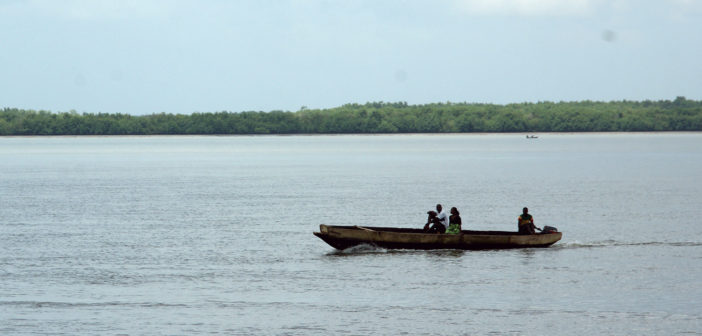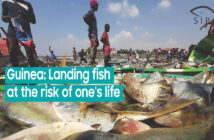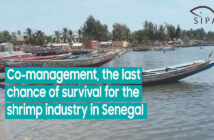José Maria Miranda Tavare is a fisherman native of the island of Bubaque, in the archipelago of Bijagós in Guinea-Bissau. Nowadays, he has migrated to Bissau. “In Bubaque, there is currently no ice production unit. This has pushed many fishermen from the island to Bissau. They fish and sell on-site because, here, at least, they can find some ice. But the population of Bubaque, an island, lacks fish! ”, he says.
“In Bubaque, we don’t have any landing infrastructure, we don’t have a fish market. When we land our fish, it’s just spread out on the ground and that is where women come to buy small quantities to sell”, he says, adding bitterly: “We have no help, no support. Any difficulty we encounter, we have to face it all by ourselves. Whether the engine of a fisherman’s boat is down, or whether he has lost his net, we try to find a solution amongst ourselves, in solidarity”.
He evokes also the impossibility of finding fishing gears in local shops, forcing the fishermen to go to neighboring countries like Senegal to buy the necessary equipment. That increases the costs.
Abdoulaye Leni is a member of the National Association of Artisanal Fishing Boat owners (ANAPA). In his view, the first of the difficulties faced by artisanal fishers in Guinea-Bissau is related to the multiplicity of taxes they have to pay to be able to go to sea. “First, there is the artisanal fishing permit which costs 205 000 CFA / year [€ 313]. For navigation, we pay 5 000 F CFA [€ 8]. In addition to this, for each fishing trip, we pay 1000 FCFA [€ 1.5] as harbor cost. A 60kg bag of ice costs 3000 FCFA [€ 4.57]. For the fuel, a liter of gasoline costs 750 FCFA [€1.15]. So much money we have to spend before even going at sea. And when we return, for each landing, we have to pay 2000 FCFA [€ 3] to the veterinarian”, says the young fisherman.
At the Artisanal Fisheries Directorate, Gualdino Afonso Ty argues that efforts have been made to relieve local fishermen. “The fishing permit did cost much more than that – there was a 30% reduction”, he says.
Indeed, for fishing permits, Guinea Bissau regulation provides for a dual pricing, one for national fishermen and one for foreign fishermen, who are present in great number in the country. “The cost of the fishing permit depends on the power of the boat. For a boat with no engine, the annual cost is less than 30,000 FCFA [€ 45.7]. For a boat with a 40 HP engine, the fishing permit costs around 200,000 FCFA [€ 300] for nationals and 600,000 [€915] for foreigners”, clarifies Gualdino Afonso Ty.
This double pricing system, also applied to industrial fleets, fuels the “nationalization” of foreign boats wanting to pay the tariff for domestic fishermen. “If this continues, the fishing effort will increase constantly”, he says, adding: “We have also a fisheries agreement with Senegal which result in about 300 Senegalese flagged boats coming to fish in our waters. It is easy for us to control these vessels that arrive here under this fisheries agreement. But there are many others which bypass this agreement and this is more difficult for us to control”.
Inoussa Maïga.




